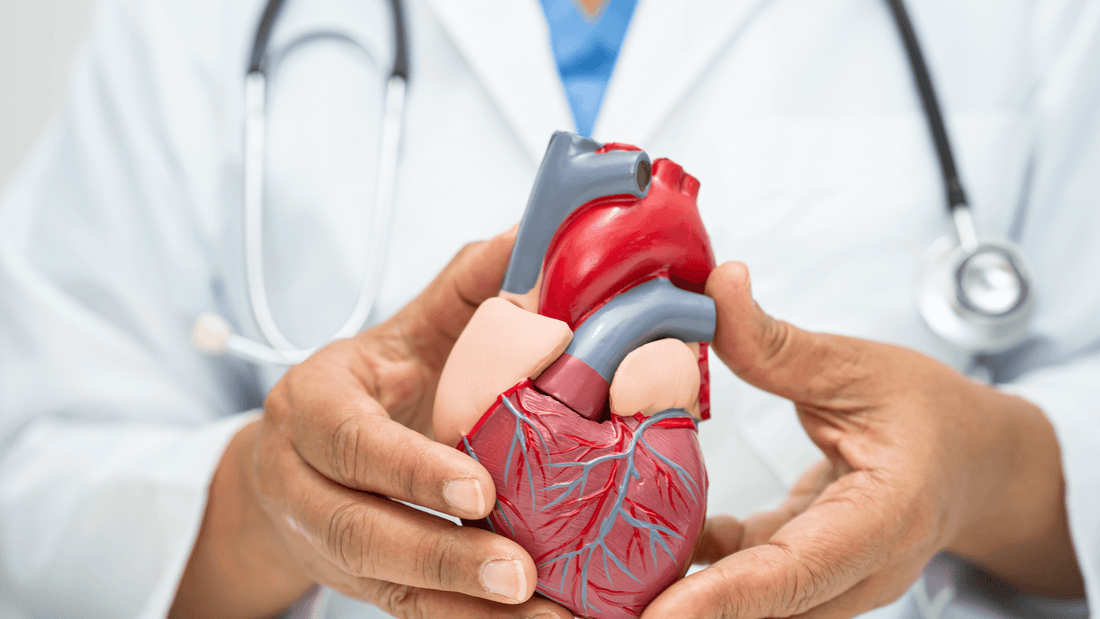Millions of people live with low vitamin D3 levels without even knowing it.
What’s more alarming? Many are unaware of how this silent gap affects the body’s natural cardiovascular functions.
Science continues to highlight the essential role vitamin D3 plays in supporting heart wellness. In this article, we’ll uncover the hidden impact of this powerful nutrient and why it matters for your heart.
If strengthening your cardiovascular health is your priority, keep reading.
Why is vitamin D3 so important?
Vitamin D3 is often called the “sunshine vitamin,” but its role goes far beyond bone strength. It contributes to the body’s natural ability to:
-
Strengthen immune system performance
-
Enhance muscle strength and coordination
-
Support nervous system balance
-
And, critically, maintain cardiovascular function
When vitamin D3 levels dip, the body may struggle to keep the heart and blood vessels functioning at their best.
This nutrient also aids calcium absorption and supports natural metabolic functions that fuel your body with energy and stamina.
Want to understand more? Learn how vitamin D3 supports overall health.
What happens when you’re low on vitamin D3?
Deficiency often develops quietly until the signs become harder to ignore. Research links low D3 levels to:
- Elevated blood pressure
- Vascular inflammation
- Irregular heart rhythms
- Overall cardiovascular strain
Over time, long-term deficiency may also contribute to:
-
Fatigue and low energy
-
Muscle weakness
-
Greater vulnerability to infections
Each of these adds extra stress on your heart and circulatory system.
How can you tell if you’re deficient?
The most accurate way is through a blood test. Yet, your body often sends signals before the results do:
- Persistent tiredness
- Muscle or joint discomfort
- Frequent colds or infections
- Low mood or motivation
- Trouble sleeping or reduced stamina
Your body speaks; listen closely.
Your heart and vitamin D3
Vitamin D3’s influence on cardiovascular wellness is often underestimated. But here’s what it helps the body naturally do:
- Regulate blood pressure
- Reduce inflammation in blood vessels
- Maintain healthy artery flexibility
-
Support optimal heart muscle function
This “tiny” nutrient has outsized effects. When blood vessels stiffen, the heart must work harder, placing long-term strain on your cardiovascular system.
Explore how For Heart Strong supports cardiovascular wellness.

Who’s most a risk?
Certain groups are more likely to struggle with low vitamin D3 levels, including:
- Adults over 50
- People with limited sun exposure
- Individuals with darker skin tones
- Those living in cloudy or northern regions
- Anyone with chronic digestive concerns
- People who are overweight or obese
At For Heart Strong, we design formulas with these higher-risk groups in mind because prevention begins with awareness.
How much vitamin D3 do you need?
The ideal intake varies based on age, lifestyle, and environment. In general:
- Adults: 600–800 IU per day
-
Older adults: up to 1,000 IU or more
While sunlight helps, it’s often not enough, especially in colder climates or for those who spend much of the day indoors.
HeartStrong Vitamin Blend provides 125 mcg (5,000 IU) of Vitamin D3 per capsule, a higher-strength dose designed to support those who need more than the minimum daily intake. Always consult your healthcare provider to determine what’s right for you.
Ways to increase your vitamin D3 levels
Here are practical steps to naturally support your levels:
-
Sunlight: Aim for 10–15 minutes daily, when possible
Foods rich in vitamin D3:
-
Fatty fish (salmon, tuna, sardines) – also packed with omega-3s
-
Egg yolks – simple to add to meals
-
Fortified dairy – often enriched with vitamin D
-
Beef liver – nutrient-dense, though not for everyone
For many, supplements are a reliable way to ensure consistent levels, especially if diet and lifestyle make it difficult.

What does the science say?
Emerging research continues to explore how vitamin D3 supports cardiovascular wellness. Key findings suggest it helps the body naturally:
-
Regulate blood pressure
-
Support vascular function
- Reduce systemic inflammation
While more studies are ongoing, the connection is clear: your heart benefits when your D3 levels are within range.
What can you do today?
Proactive steps make a powerful difference:
-
Ask your doctor about a vitamin D3 blood test
-
Assess your daily sunlight exposure
-
Review your diet and activity level
-
Consider adding HeartStrong Vitamin Blend to your daily wellness routine
Taking action today is the simplest investment in your long-term cardiovascular health.
Remember this
Vitamin D3 is more than just a sunshine vitamin.
When levels are low, the entire body feels the impact, especially your heart and circulatory system.
At For Heart Strong, we believe that small, consistent actions lead to powerful outcomes.
And you? Do you really know your Vitamin D3 levels?
Don’t let a lack of awareness put your heart at risk.
Now is the time to take action and give your health the priority it deserves.
Click here to connect with our team. We’re ready to guide you, answer your questions, and help you discover the support your heart truly needs.
Your well-being starts with one decision. Will you make it today?
Disclaimer: These statements have not been evaluated by the FDA. No information here is meant to diagnose, treat, cure, or prevent any disease. No supplements offered are meant to diagnose, treat, cure, or prevent any disease.
Money Back Guarantee

